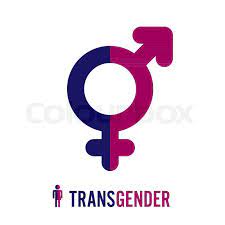Hormone Replacement Therapy (HRT) has gained significant attention in recent years, especially among those experiencing hormonal imbalances due to aging, menopause, or other health conditions. As the conversation around HRT becomes more mainstream, many people are curious about what it entails and if it could benefit them. This article will dive into the ins and outs of hormone replacement therapy clinics, exploring what they are, how to select one, and the various aspects of HRT that can improve your quality of life.
What is Hormone Replacement Therapy, Anyway?
Hormone Replacement Therapy is a medical treatment designed to supplement or replace hormones that are at deficient levels in the body. Most commonly associated with menopausal women, HRT can also benefit men with low testosterone levels and individuals undergoing gender transitions, among others. The therapy can involve various hormones, including estrogen, progesterone, and testosterone, depending on the individual’s specific needs. The goal is to restore hormone levels to a more balanced state, alleviating symptoms linked to hormonal deficiencies.Mtf Hrt Breast TimelineSudden Onset Gender DysphoriaHigh E2 Symptoms Male Trt
The therapy can be administered in multiple forms, such as pills, patches, gels, or injections. The method of delivery often depends on personal preference, medical history, and specific hormone levels. Given that hormonal balance plays a crucial role in numerous bodily functions, including mood, energy levels, and metabolic processes, HRT has become a vital option for many looking to enhance their overall well-being.
The Benefits of Hormone Replacement Therapy Explained
One of the primary benefits of HRT is the relief it offers from symptoms associated with hormonal imbalances. For women, this could mean alleviating hot flashes, night sweats, and mood swings that often accompany menopause. For men, HRT can assist in addressing issues such as fatigue, decreased libido, and mood changes due to low testosterone levels. Many patients report improved mental clarity and energy levels, making HRT a transformative experience.
Another notable advantage is the potential long-term health benefits of HRT. Research suggests that it may help protect against osteoporosis, heart disease, and other age-related conditions. By restoring hormone levels, individuals may not only enhance their quality of life but also reduce the risk of developing chronic illnesses. However, it’s essential to consult healthcare professionals for a personalized assessment, as the benefits can vary depending on individual circumstances.
How to Choose the Right Clinic for Your Needs
Selecting the right hormone replacement therapy clinic can feel overwhelming, especially with so many options available. Start by looking for clinics that specialize in hormone therapy and have a good reputation. Online reviews can provide insights into other patients’ experiences, highlighting the clinic’s effectiveness and patient care. Don’t hesitate to ask for recommendations from friends or family members who may have undergone HRT themselves.
Once you have a shortlist, check the credentials of the healthcare professionals at the clinic. It’s important to ensure that they are board-certified and experienced in hormone therapy. Many clinics offer free consultations, allowing you to meet the staff, discuss your concerns, and determine if you feel comfortable with their approach. Finding a clinic that resonates with your values and needs is crucial for a successful journey.
What to Expect During Your First Clinic Visit
During your first visit to a hormone replacement therapy clinic, you can expect a comprehensive evaluation. Most clinics will conduct thorough assessments, including a detailed medical history review and possibly blood tests to evaluate your current hormone levels. This information is crucial for tailoring a treatment plan specific to your needs and lifestyle. You’ll also have the opportunity to discuss your symptoms and goals, helping the healthcare provider understand how best to support you.
After the initial evaluation, you will likely receive recommendations for treatment options. Expect to have an open and honest discussion about the pros and cons of different therapies. The healthcare provider will take the time to explain each option’s expected outcomes, potential side effects, and how to monitor progress. This collaborative approach ensures you’re well-informed and have a vested interest in your treatment plan.
Common Myths About Hormone Replacement Therapy Debunked
One of the most persistent myths surrounding hormone replacement therapy is that it’s only for women experiencing menopause. While it’s true that HRT is commonly associated with menopausal symptoms, men and those undergoing gender transitions also benefit from hormone therapy. It’s essential to recognize that hormonal imbalances can affect anyone, and treatment should be considered on an individual basis.
Another common misconception is that HRT is inherently unsafe. Like any medical treatment, there are risks involved, but many studies suggest that, when managed correctly and customized to the individual, HRT can be a safe and effective way to improve quality of life. It’s crucial to work closely with your healthcare professional to understand these risks and take a personalized approach to therapy.
Different Types of Hormone Replacement Options Available
When considering hormone replacement therapy, it’s important to understand the various options available. For women, the most common forms of HRT include estrogen therapy, often combined with progesterone to protect the uterus. This can be administered through pills, patches, creams, and rings, offering flexibility based on personal preferences. For men, testosterone therapy is typically available in injections, gels, or pellets, each designed to improve testosterone levels and associated symptoms.
In addition to traditional HRT, some clinics may offer bioidentical hormone therapy, which uses hormones that are chemically identical to those the body naturally produces. This approach appeals to some individuals seeking a more "natural" option. However, it’s essential to consult with a healthcare provider to determine which type of therapy will best meet your needs and lifestyle.
The Role of Healthcare Professionals in Your Journey
Healthcare professionals play a pivotal role in your hormone replacement therapy journey. They serve as your guides, helping you navigate the complexities of hormonal health and tailor a treatment plan specific to your needs. From the initial consultation to ongoing support, these professionals monitor your progress, adjust dosages, and address any concerns that may arise during treatment.
Furthermore, healthcare providers are responsible for educating patients about hormone therapy, ensuring they understand the potential benefits and risks. This partnership is essential for maximizing the effectiveness of HRT, making it easier to achieve your health and wellness goals.
Is Hormone Replacement Therapy Right for You?
Determining if hormone replacement therapy is the right choice for you involves careful consideration of your symptoms, health goals, and medical history. If you’re experiencing symptoms linked to hormonal imbalances—such as mood swings, fatigue, or decreased libido—HRT may be worth exploring. However, it’s essential to have a candid conversation with a healthcare provider about your concerns and expectations.
Ultimately, the decision to pursue HRT should be made collaboratively between you and your healthcare professional. By assessing your individual needs and weighing the potential benefits against the risks, you can confidently determine whether hormone replacement therapy aligns with your health goals.
Hormone replacement therapy clinics provide a vital service for those struggling with hormonal imbalances. With the right support, individuals can significantly enhance their quality of life and overall well-being. As you consider your options, remember to prioritize open communication with healthcare professionals and choose a clinic that aligns with your needs and values. Whether you’re seeking relief from menopausal symptoms, low testosterone, or other hormonal issues, you’re not alone on this journey, and the right help is out there for you!


